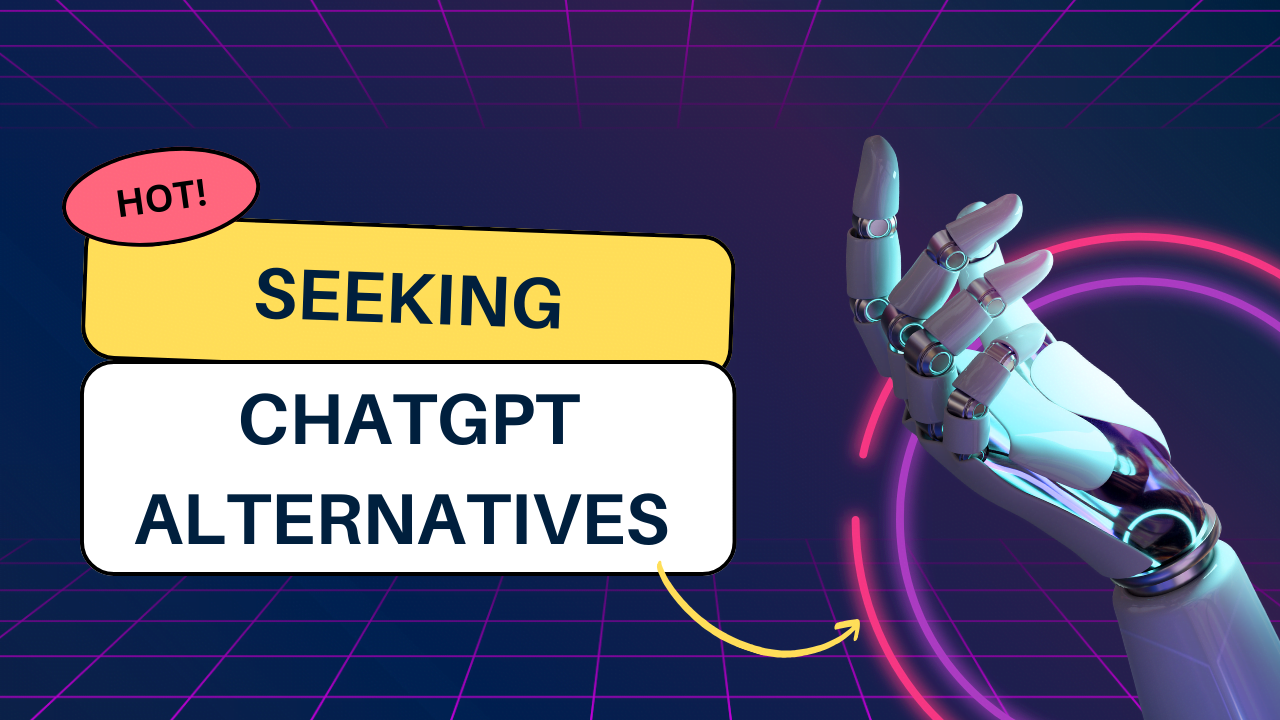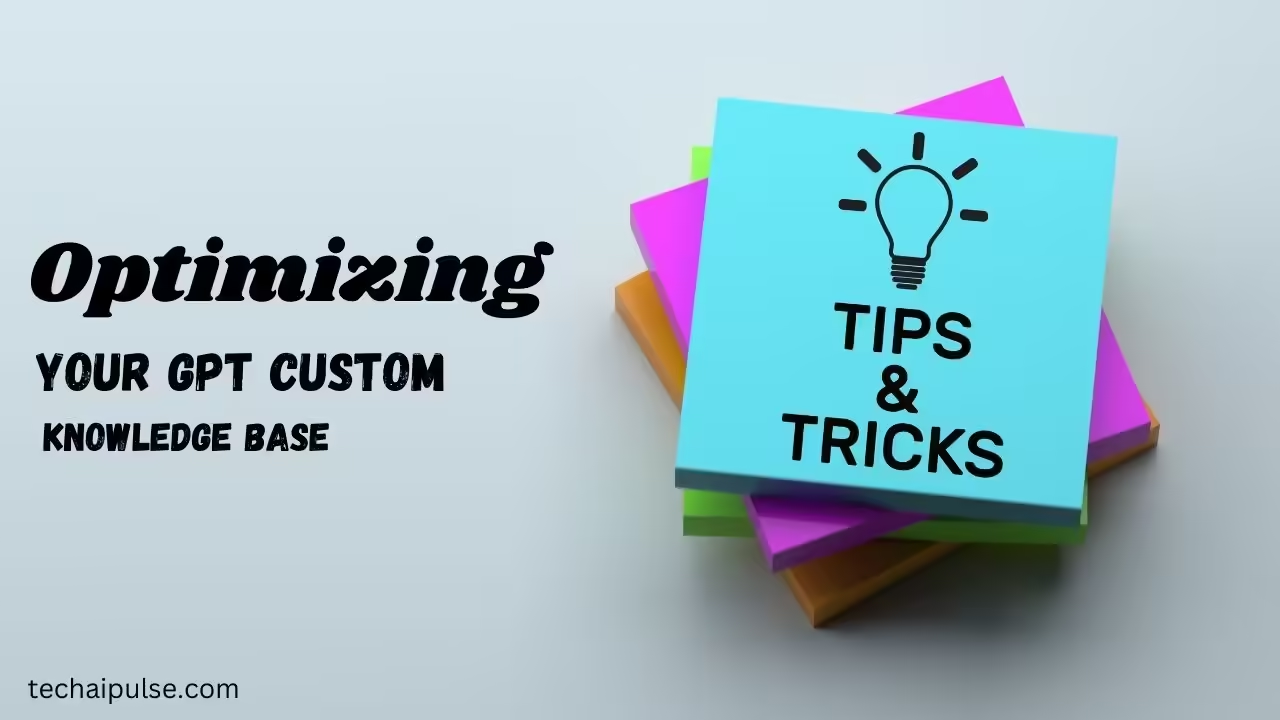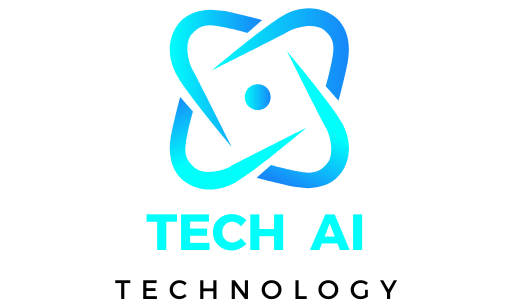Looking to build a smarter AI that truly understands your needs? A GPT custom knowledge base in 2025 is the game changer for businesses, developers, and content creators who want AI powered responses tailored to their unique data. Instead of relying on generic outputs, a custom trained GPT model refines responses based on specific industry insights, documents, or customer interactions.
With advancements in AI powered knowledge management, you can create a highly intelligent chatbot, automate workflows, or enhance customer support with context aware AI responses. In this guide, we’ll break down the latest strategies to build, optimize, and scale a GPT powered knowledge base, ensuring both Google ranking and human engagement. 🚀
GPT Custom Knowledge Base: The Ultimate Guide for 2025
What is a GPT Custom Knowledge Base? (Direct Answer)
A GPT custom knowledge base is an AI powered system that enhances GPT models with domain specific information. Instead of relying solely on publicly available data, a custom trained GPT model integrates private documents, company policies, FAQs, and industry insights to generate precise and context aware responses.
This approach improves AI accuracy, automation efficiency, and user experience. In 2025, businesses and developers are leveraging custom AI knowledge bases to power chatbots, customer support, and data driven applications.
Why Do You Need a GPT Custom Knowledge Base?
A standard GPT model provides general responses but lacks real time contextual understanding of your business, website, or industry. A GPT custom knowledge base bridges this gap by enabling AI to process specific company data, proprietary documents, and user generated content.
This is crucial for industries like e-commerce, SaaS, healthcare, and finance, where accurate and up to date responses are necessary.
By implementing a custom AI powered knowledge system, you can:
- Improve chatbot response accuracy for customer support.
- Enhance AI content generation with industry specific knowledge.
- Automate data driven decision making with AI insights.
- Ensure consistent brand messaging across digital platforms.
How to Build a GPT Custom Knowledge Base in 2025
Building a custom trained GPT model requires structuring data efficiently and training AI on relevant business documents, structured datasets, and real time user interactions. Follow these steps to create an optimized GPT powered knowledge base:
1. Define Your Knowledge Base Scope
Start by identifying the type of data your AI needs. This includes:
- Internal Documentation: Company policies, training manuals, and guidelines.
- Customer Support Data: FAQs, chatbot transcripts, and email responses.
- Industry Specific Information: Market reports, research papers, and compliance documents.
A well structured custom AI knowledge management system ensures that GPT generated responses are accurate and relevant to your business needs.
2. Choose the Right AI Training Method
To create a GPT powered knowledge base, you need a strategy that fits your use case. Common approaches include:
- Fine Tuning GPT Models: Training AI with proprietary datasets for deep contextual learning.
- Embedding Vector Databases: Using AI powered search algorithms for real time data retrieval.
- API Integration: Connecting GPT with live data sources, CRM systems, and cloud databases for up to date responses.
3. Optimize Data Input for Maximum AI Efficiency
A successful custom GPT knowledge system depends on high quality, structured data. Follow these best practices:
- Use semantic search optimization to enhance AI comprehension.
- Implement metadata tagging for better data categorization.
- Keep data updated and dynamic to maintain relevance in 2025.
4. Test, Improve, and Scale Your AI Model
Once your GPT knowledge base is set up, rigorous testing and optimization ensure peak performance. Utilize:
- AI response validation to check for accuracy.
- User feedback loops for continuous improvement.
- Scalable infrastructure to handle real time AI queries efficiently.
Best Use Cases for a GPT Custom Knowledge Base in 2025
A GPT powered knowledge system is transforming various industries by offering personalized, data driven AI solutions. Common applications include:
1. AI Powered Customer Support
Automate chatbots, email responses, and live chat interactions with an AI trained on customer inquiries and support tickets.
2. Intelligent Content Generation
Create SEO optimized blog posts, marketing copy, and reports by feeding AI with structured industry data.
3. Smart Enterprise Solutions
Enhance corporate knowledge management, HR automation, and internal documentation with AI powered search.
4. Data Driven Decision Making
Use AI to process business analytics, market trends, and financial forecasting for better strategic planning.
Future of GPT Custom Knowledge Bases in 2025 and Beyond
As AI technology advances, custom trained GPT models will become more powerful, supporting real time learning, multimodal AI capabilities, and seamless API integration. Companies investing in AI driven knowledge bases will gain a competitive edge by offering accurate, contextual, and real time AI solutions.
What is a GPT Custom Knowledge Base?

Definition of GPT Custom Knowledge Base
A GPT custom knowledge base is a specialized AI model trained on specific data sources. Unlike general purpose GPT models, it focuses on domain specific knowledge, improving accuracy and relevance in responses. Businesses use it to store, manage, and retrieve information efficiently.
How It Differs from General Purpose GPT Models
A custom GPT model is tailored to a particular field, unlike standard GPT models trained on broad datasets. It understands industry specific terminology, ensuring precise AI driven insights. This customization helps businesses improve workflow automation and decision making.
Role of AI Powered Knowledge Management in Business Automation
AI powered knowledge management systems streamline information retrieval, reducing manual effort. Custom trained GPT AI automates tasks like customer support, document analysis, and real time decision making. It integrates with business tools, enhancing productivity and reducing human intervention.
Benefits of Using a Custom Trained GPT Model
- Higher Accuracy: Delivers precise answers using domain specific data.
- Improved Efficiency: Automates workflows, reducing response times.
- Scalability: Expands with business needs while maintaining relevance.
- Enhanced Decision Making: Provides actionable insights with minimal errors.
A GPT powered custom knowledge base transforms businesses by enhancing automation, AI driven insights, and knowledge management. It ensures smarter, faster, and more efficient operations. 🚀
How Does a GPT Custom Knowledge Base Work?
A GPT custom knowledge base improves AI responses by integrating specific data sources. It enhances accuracy, personalization, and real time learning. Businesses use this to create AI powered chatbots, virtual assistants, and automation tools.
AI Training Methods: Fine Tuning vs. Retrieval Based Models
AI models learn using two primary methods: fine tuning and retrieval based learning.
- Fine tuning: Adjusts pre trained models with custom datasets. This method improves specialized knowledge but requires significant computation.
- Retrieval based models: Use external databases to fetch relevant information without modifying the core model. This allows for real time updates and broader knowledge access.
Combining both techniques enhances AI efficiency, ensuring fast and accurate responses.
Role of Natural Language Processing (NLP) in AI Responses
Natural Language Processing (NLP) enables AI to understand, process, and generate human like responses. Advanced machine learning algorithms analyze context, sentiment, and intent.
- NLP improves text comprehension and contextual accuracy.
- It refines language fluency, making AI generated content more natural.
- Helps in understanding user intent, reducing irrelevant responses.
Modern GPT models use deep learning and NLP advancements to enhance dialogue coherence and personalization.
How Embedding Vector Databases Enhance Knowledge Retrieval
Embedding vector databases transform textual data into numerical vectors, allowing AI to retrieve information efficiently. These databases enhance:
- Faster search and retrieval: AI finds relevant data points instantly.
- Semantic understanding: Improves context based responses.
- Scalability: Supports large datasets while maintaining accuracy.
Popular vector databases like FAISS, Pinecone, and Weaviate improve AI memory and response precision.
Using API Integrations to Connect GPT Models with Real Time Data
APIs bridge GPT models with live data sources, enabling dynamic and up to date responses. API integrations allow AI to:
- Access real time stock market data, weather updates, or news.
- Retrieve user specific information from private databases.
- Enhance chatbot functionality by connecting with CRM, CMS, and ERP systems.
Popular AI integrations include OpenAI API, LangChain, and GraphQL for seamless data connectivity.
Why You Need a GPT Custom Knowledge Base in 2025

AI driven businesses need smarter, more personalized solutions. A GPT custom knowledge base enhances chatbot accuracy, automates responses, and ensures better user engagement. By training AI on business specific data, companies can deliver precise and context aware replies.
Personalized AI for Businesses and Individuals
Generic AI models lack context. A custom GPT knowledge base tailors responses based on industry specific data. Businesses can integrate AI powered customer support, while individuals benefit from personalized AI assistants that understand unique needs.
Enhanced Customer Support Automation
AI powered chatbots with a custom knowledge base improve response times and accuracy. Companies can automate frequently asked questions, handle complex queries, and reduce support costs. AI automation enhances user experience and boosts customer satisfaction.
Industry Specific AI Models
A GPT trained AI can specialize in healthcare, finance, SaaS, and education. Healthcare chatbots assist with patient inquiries. Financial AI models provide accurate investment insights. SaaS companies offer automated technical support, while educational AI tools provide personalized learning experiences.
Improved Chatbot Performance with Contextual Understanding
A custom knowledge base enables context aware AI responses. Unlike standard chatbots, trained AI models remember past interactions, ensuring seamless conversations. This enhances AI’s ability to predict user intent, improving engagement.
Data Security: Keeping Proprietary Knowledge Private
Public AI models risk data leaks and unauthorized access. A GPT custom knowledge base keeps sensitive business information private. Companies can train AI with proprietary knowledge while maintaining full data control.
5 Key Components of a Custom GPT Knowledge Base
A Custom GPT Knowledge Base enhances AI powered responses by structuring and optimizing data for accuracy and efficiency. Below are the essential components:
1. Structured Datasets: FAQs, Policies, User Guides
A well organized knowledge base starts with structured datasets. It includes FAQs, company policies, user manuals, and troubleshooting guides. These resources help AI models deliver accurate responses. Data standardization improves retrieval efficiency, ensuring users receive relevant, precise answers.
2. AI Training Models: Fine Tuned GPT & Retrieval Based Learning
Fine tuning GPT models enhances response quality. Retrieval based learning allows AI to pull data from vast sources while maintaining context relevance. Supervised training improves accuracy and adaptability, ensuring AI understands queries better and generates human like responses.
3. Cloud Storage & APIs: Scalable Data Retrieval
A scalable cloud storage system is essential for fast, secure access to knowledge. APIs enable seamless integration with databases and third party applications. Real time data syncing ensures AI stays updated with the latest policies, FAQs, and documents.
4. Semantic Search Optimization: Improving AI Comprehension
Semantic search technology helps AI understand user intent beyond keywords. Natural language processing (NLP) improves query matching, ensuring AI retrieves contextually accurate answers. Vector search and transformer based indexing boost search efficiency.
5. Metadata Tagging: Organizing Information Efficiently
Metadata tagging structures documents, policies, and support tickets for better organization. Categorization, indexing, and keyword tagging improve searchability. AI can quickly locate relevant data, leading to faster, more accurate responses.
How to Build a GPT Custom Knowledge Base (Step by Step Guide)

A GPT powered knowledge base helps businesses automate responses, enhance decision making, and improve customer support. Follow this step by step guide to create a powerful AI driven knowledge system.
Step 1: Define the Scope of Knowledge
Start by identifying the industry specific data sources your AI will use. Analyze business needs and define AI use cases like chatbots, automation, or internal knowledge management. Choose between open source AI models (Llama, Falcon) or proprietary models (OpenAI’s GPT 4, Anthropic’s Claude).
Step 2: Collect & Structure Data
Gather high quality internal documentation, FAQs, and research papers. Use data pre processing techniques to remove noise, standardize formats, and enhance data quality. Store information in structured formats like JSON, CSV, or vector databases for better retrieval.
Step 3: Choose the Right Training Method
Fine tune GPT models for deeper learning on domain specific data. Use vector embeddings (via tools like OpenAI’s Ada or FAISS) to enable real time information retrieval. A hybrid approach combining fine tuning with vector search ensures both accuracy and efficiency.
Step 4: Integrate with AI APIs
Connect your GPT model with cloud databases, CRM systems, and knowledge graphs. Use APIs to fetch real time data, enabling AI to deliver dynamic and up to date responses. Ensure seamless API integration for smooth data flow and optimal system performance.
Step 5: Test, Validate & Improve
Run AI response accuracy tests to measure reliability. Implement human in the loop (HITL) feedback for ongoing improvement. Scale your system using optimized inference techniques for high speed, large scale knowledge retrieval.
7 Best Practices for Optimizing a GPT Custom Knowledge Base
A well optimized GPT custom knowledge base improves accuracy, SEO performance, and user trust. Follow these best practices to ensure high quality, AI generated responses that stay relevant in 2025.
1. Use SEO Friendly AI Generated Responses
Ensure responses align with search intent. Optimize AI outputs with target keywords, structured headings, and clear formatting. Use natural language to enhance readability and engagement. Implement schema markup for better search rankings.
2. Ensure Data Accuracy and Relevancy
Regularly audit and refine your AI knowledge base. Verify sources to prevent misinformation. Cross check facts with authoritative industry updates. Use retrieval augmented generation (RAG) to enhance response accuracy.
3. Apply AI Explain ability for Trust and Transparency
Make AI generated content understandable and credible. Provide source citations and confidence scores. Use explainable AI techniques to show how the model arrives at responses. Enhance trust by incorporating user feedback mechanisms.
4. Keep the Knowledge Base Updated with 2025 Industry Trends
Monitor emerging trends in AI, search algorithms, and industry best practices. Update content with the latest research, case studies, and expert insights. Leverage AI powered analytics to identify outdated information and refresh it accordingly.
5. Optimize Content Structuring for Better Indexing
Use hierarchical structuring with clear categories and subcategories. Implement FAQ sections and structured data for rich snippets. Ensure AI generated content is digestible, concise, and logically organized for optimal indexing.
6. Enhance AI Training with User Behavior Insights
Analyze user queries and interactions to improve responses. Train AI models on real world data and customer feedback. Continuously fine tune the model to enhance accuracy, tone, and relevance.
7. Implement Security and Compliance Measures
Ensure GDPR and CCPA compliance. Protect user data with encryption and access controls. Regularly review AI generated content to prevent biases and ensure ethical AI practices.
By following these best practices, businesses can optimize GPT powered knowledge bases for accuracy, SEO performance, and long term reliability in 2025.
Common AI Challenges and How to Overcome Them
Artificial intelligence is transforming industries, but challenges persist. Addressing these issues ensures AI systems are fair, scalable, and explainable. Below are key AI challenges and their solutions.
1. Data Bias in AI Models: How to Ensure Fairness
AI models often inherit biases from training data. This leads to unfair outcomes. To mitigate bias:
- Use diverse and representative datasets.
- Apply bias detection algorithms to monitor predictions.
- Implement explainable AI (XAI) methods for transparency.
Fair AI ensures ethical decision making and reduces discrimination in AI applications.
2. Handling Real Time Updates in Knowledge Bases
AI systems must stay current with evolving data. Outdated information leads to incorrect responses. To handle real time updates:
- Use automated data pipelines for continuous updates.
- Implement vector databases for fast knowledge retrieval.
- Utilize reinforcement learning models to improve AI accuracy.
Real time AI knowledge bases enhance reliability and improve user trust in AI systems.
3. Ensuring AI Interpretability and Explain ability
Users need to understand how AI makes decisions. A lack of transparency reduces trust. Solutions include:
- Using interpretable machine learning models like decision trees.
- Implementing SHAP and LIME to explain predictions.
- Providing visual AI dashboards for users to analyze outputs.
Explainable AI (XAI) helps businesses comply with AI transparency regulations.
4. Scaling AI Powered Knowledge Retrieval for Enterprise Use
Large scale AI solutions face scalability issues. Slow response times hinder business efficiency. To scale AI powered knowledge retrieval:
- Use distributed computing frameworks like Apache Spark.
- Optimize AI inference speed with edge computing.
- Implement hybrid AI architectures combining symbolic and neural models.
Scalable AI improves business operations and enhances enterprise AI adoption.
Best Use Cases for a GPT Custom Knowledge Base in 2025
A GPT powered custom knowledge base transforms industries by automating workflows and improving efficiency. Businesses use AI to enhance customer support, content creation, data analysis, and healthcare solutions. Here are the top use cases driving AI adoption in 2025.
1. AI Powered Customer Support
AI chatbots with custom trained knowledge bases automate FAQ responses and streamline customer interactions. These bots enhance ticket resolution efficiency, reducing wait times and improving customer satisfaction. AI also assists support agents by retrieving relevant information in real time.
2. AI Content Generation
GPT powered AI tools create SEO optimized articles, improving search rankings. Businesses automate product descriptions, blog writing, and marketing copy with AI driven content engines. This ensures consistent brand messaging and increases engagement.
3. AI Powered Business Intelligence
AI extracts insights from structured and unstructured data, helping companies make data driven decisions. It automates financial forecasting, market trend analysis, and performance tracking. This improves accuracy and speeds up decision making.
4. AI Powered Healthcare Knowledge Management
AI enhances clinical decision support systems (CDSS) by providing accurate, up to date medical knowledge. It assists doctors and researchers with real time information retrieval. AI also automates medical documentation, reducing administrative workload and improving efficiency.
A GPT driven knowledge base revolutionizes industries by enhancing automation, efficiency, and accuracy. Businesses leveraging AI in customer service, content creation, business intelligence, and healthcare gain a competitive edge in 2025.
Future of GPT Custom Knowledge Bases in 2025 and Beyond

1. Advancements in Multimodal AI Training
AI models are evolving beyond text. Multimodal AI training enables GPT to process text, images, videos, and speech seamlessly. This advancement improves content understanding, contextual accuracy, and real world applications. Businesses can integrate AI powered customer support, automated content creation, and smart data analysis with enhanced efficiency.
2. Improved AI Personalization for Industry Specific Applications
Custom GPT knowledge bases are transforming industries. AI can now adapt to business needs, offering tailored solutions in healthcare, finance, education, and e-commerce. Companies can train models on proprietary data, ensuring accurate responses, domain expertise, and automated decision making. This shift enhances user experience, predictive analytics, and operational efficiency.
3. Real Time Learning Models with Continuous Updates
Static AI models are outdated. The future of GPT relies on real time learning with continuous updates. This innovation allows AI to absorb new data, refine responses, and stay relevant. Businesses benefit from up to date insights, automated trend analysis, and real time knowledge sharing. Continuous learning ensures AI remains accurate, competitive, and adaptable.
4. Ethical Considerations and AI Bias Mitigation Strategies
AI ethics are a top priority in 2025. Developers focus on reducing AI bias, ensuring fair decision making, and improving transparency. Advanced algorithmic auditing, diverse training datasets, and human oversight help mitigate bias. Companies must comply with AI regulations, data privacy laws, and ethical AI standards to maintain trust, credibility, and responsible AI adoption.
FAQs:
Q1. What is a GPT Custom Knowledge Base?
A GPT custom knowledge base is a specialized AI model trained on domain specific data, enabling accurate, contextual responses tailored to a particular industry, business, or use case.
Q2. How Does a GPT Custom Knowledge Base Work?
It works by using fine tuned AI models or retrieval based learning to process structured and unstructured data. It integrates with APIs, vector databases, and semantic search algorithms to retrieve the most relevant answers.
Q3. What Are the Benefits of Using a GPT Custom Knowledge Base?
- Provides accurate, real time AI responses.
- Improves customer support automation.
- Enhances business intelligence & decision making.
- Ensures data privacy for proprietary knowledge.
- Scales seamlessly across industries.
Q4. How Can Businesses Use a GPT Custom Knowledge Base?
Businesses can integrate AI powered knowledge management for:
- Customer service chatbots.
- Internal documentation retrieval.
- Automated content generation.
- AI driven market analysis.
- Healthcare and legal knowledge systems.
Q5. Can a GPT Custom Knowledge Base Be Updated in Real Time?
Yes, modern AI models allow real time data updates by integrating live databases, APIs, and knowledge graphs, ensuring responses remain accurate and current.
Q6. How Do You Train a GPT Custom Knowledge Base?
To train a custom GPT model, you need:
- High quality, structured data sources.
- Fine tuning with proprietary datasets.
- Embedding vector databases for retrieval efficiency.
- Human feedback loops to refine accuracy.
Q7. Is a GPT Custom Knowledge Base Secure?
Yes, it can be made highly secure by implementing:
- Data encryption and secure cloud storage.
- Access control and authentication layers.
- Privacy compliant AI models (GDPR, HIPAA, etc.).
Q8. What Are the Challenges of Using a GPT Custom Knowledge Base?
Some common challenges include:
- Data bias and misinformation risks.
- Maintaining real time updates.
- Ensuring AI interpretability and transparency.
- Managing integration complexities with existing systems.
Q9. How Much Does It Cost to Build a GPT Custom Knowledge Base?
The cost varies based on:
- Data volume and complexity.
- AI model fine tuning requirements.
- Hosting and API integration expenses.
- Custom AI development and maintenance costs.
Q10. What Is the Future of GPT Custom Knowledge Bases in 2025?
Expect advancements in:
- Multimodal AI with voice, text, and image capabilities.
- Hyper personalized AI training for industry specific needs.
- Self learning models with continuous real time updates.
- AI driven automation in enterprise knowledge management.
Conclusion:
A GPT custom knowledge base is a game changer for businesses, enabling accurate, real time AI responses tailored to specific needs. With advancements in AI driven automation, secure data handling, and continuous learning, it’s set to revolutionize knowledge management in 2025.
Whether for customer support, internal documentation, or industry specific insights, integrating a custom GPT model ensures efficiency, scalability, and competitive advantage. As AI evolves, staying ahead with a well trained, secure, and up to date knowledge base will be crucial for success. 🚀

